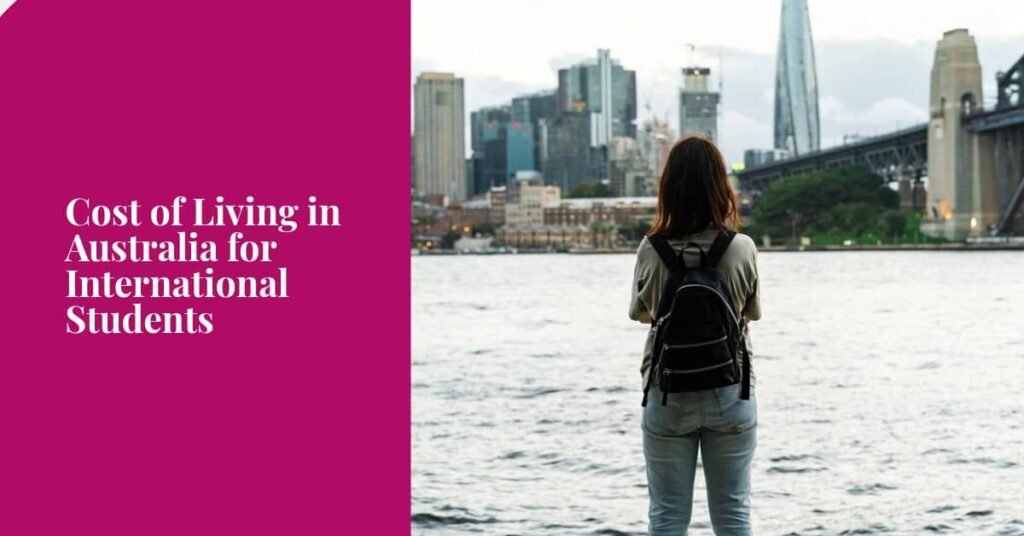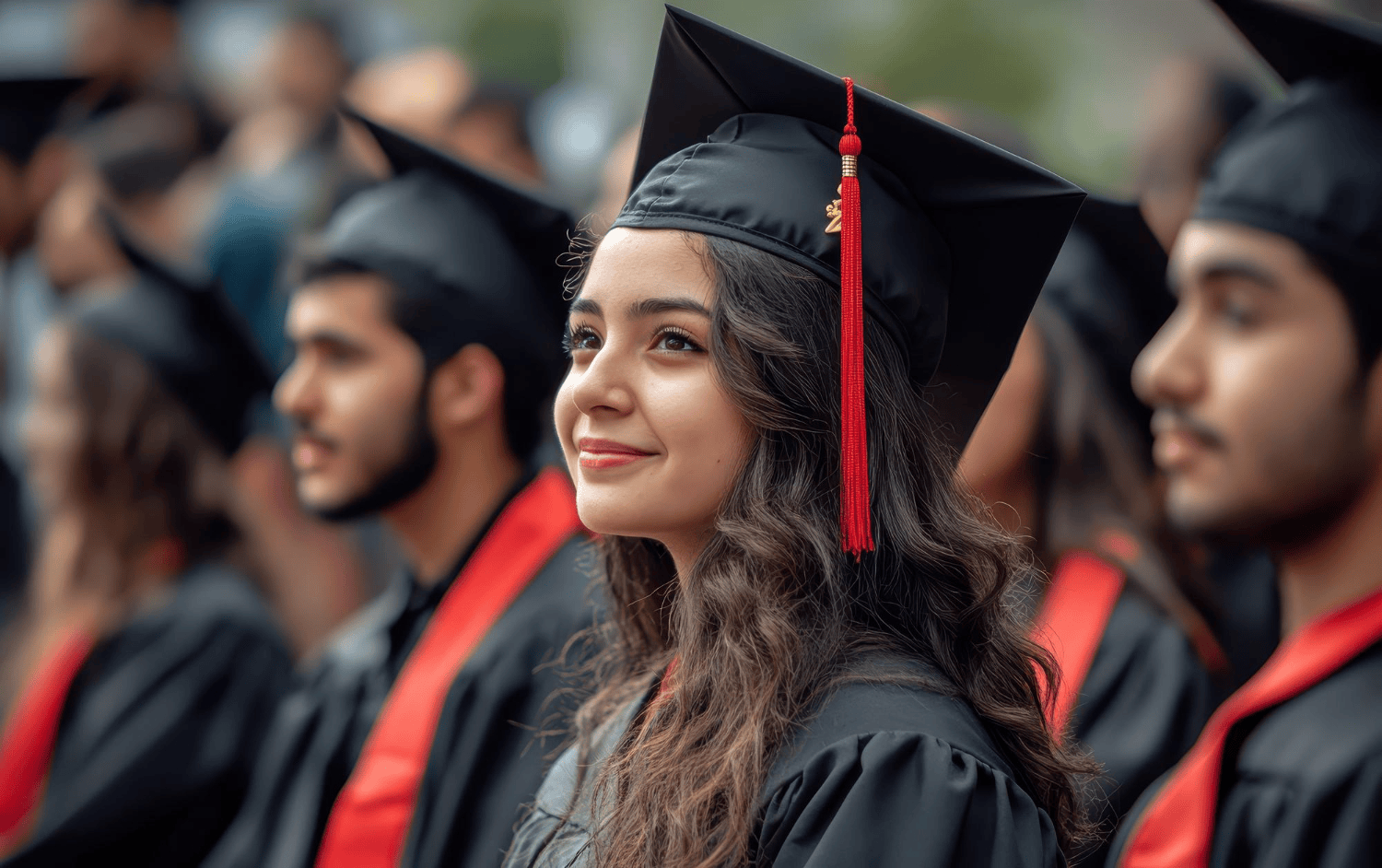Wants to know cost of living in Australia for international students?
Australia, well-known globally for its high-quality educational system, amazing culture, and diverse landscapes, is the best place for international students to obtain a great learning experience.
But have you ever imagined an Australian financial structure for an international student? Balancing school life and economic lifestyle is interesting, though the cost of living remains the sneaky factor that most students often need to consider. So, for students who come from diverse parts of Australia, get along well with their friends from the diverse cities of Australia, and live on a budget most of the time, how do they manage all of that?
In this blog, we will outline the different costs that are part of the ‘living expenses’ of international students who want to study in Australia.
Table of Contents
ToggleAccommodation
The impact of living abroad on mental health can be observed in several small and big ways. Moreover, one of the tough things about studying as an international student in Australia is locating a home away from safety and comfort.
Regarding international students in Australia, accommodation is one of the most expensive things a student must do during his/her stay there.
The cost differences are wide from one city to the other, depending on the size of the accommodation required. They are mostly, on average, between AUD 11k to 22k each year.
-
On-Campus Accommodation
Australian universities commonly have on-campus rooms or apartments shared with other students. But it costs much more to international students far away from their homes, around $15K-$22K annually. Most international students can’t afford such rent, and they have to find accommodation outside the campus.
-
Off-Campus Accommodation
Students, especially those who can afford less, usually consider off-campus renting because more space and convenience accompany the arrangement. Rental yields can range from $11000 to $18000 based on the real estate’s configuration and location.
Food: Savoring the Diversity
Australia‘s broad food cultural display has a variety of dining options, the costs of which are different from one person to another. There are mixed figures involved in the food budget for international students, depending on each economy. Hence, the figures range from AUD3,000- AUD6,000 per year.
-
Grocery Shopping
Home cooking involves affordable food, typically costing $80-$150 per week, so the location and dietary requirements vary.
-
Eating Out
Having lunch or dinner at a mid-range café will set us up between AU $20 to AU $40. Considering inexpensive but inaccessible local restaurants and having dinner at home can keep the food bills in check.
Transportation
The transportation system in Australia is widely developed. Hence, most students use what is provided in their cities of residence to travel around. Transportation expenditures are subject to the dynamics of the mode used and the location, with variations between AUD 1,500 and AUD 3,000 per year.
-
Public Transport
This means of transport, such as buses or trains, represents a cost-effective moving mode. Monthly lorry passes may cost $100-$200 in different countries, depending on the city.
-
Bike Rental
In a few cities, bike rental services are possible, which would be the best option for less toxic and highly-economical transportation. This could be from AUD 50 to AUD 100 per month.
Healthcare: Prioritizing Well-Being
Australia takes pride in its health system; therefore, international students are bound to enroll in Overseas Student Health Cover (OSHC), which is provided by several private hospitals. International students shall normally pay for their healthcare, which varies from 1,000 to 2,000 Australian dollars annually.
-
OSHC
OSHC’s cost differs from one insurance to another and is based upon both duration and provider. Generally, residence students pay between $500 and $1000 per annum for health insurance.
-
Medical Expenses
In general, basic medical services are covered by OSHC, but some surplus expenses, such as dental or optical care, maybe a heavy burden on pockets. Paying for an unexpected medical incident, the unforeseeable expenses may range from AUD$500 to more than AUD$1,000.
Other Expenses
While studying, maintaining a perfect balance between academics and lifestyle is one of the most essential parts.
Besides the essential stuff, extra fees that are there for the purchasing of textbooks and cell phone bills are all part and parcel of the costs that an international student has to consider. Sometimes, you also have to pay money for hanging out with friends. The budget allocated for the other expense categories may range from AUD$3000 to AUD$6000 every year.
-
Textbooks and Study Materials
Textbooks are a major expenditure almost every year, and the prices differ according to students’ course of study. Spending money on used books or taking advantage of university libraries can be a great strategy for lowering one’s expenses, reducing their annual budget by AUD 500 and AUD 1000.
-
Phone Bills and Internet
Emails, Skype, Facebook, and Facetime are indispensable tools for international students. Communication costs reflect essential expenses in their budgets. Giving yourself about $500 to $1,000 a year for the utilities is the best course of action.
-
Entertainment and Social Activities
Australia has an enormous variety of social groups. Therefore, this leads to students’ voluntary engagement in extra-curricular activities or to gaining knowledge about cultural diversity. To summarise the meaning of that stanza, $1000 to $2000 per year to go out and have a social life guarantees students the opportunity to have a balanced and enjoyable life.
Conclusion
To sum up, the costs of studying in Australia for international students can be monitored adequately with the advanced budget plans. The awareness of the breakdown of expenses comprising accommodations, food, transportation, healthcare, and other miscellaneous expenses enables students to make decisions related to finances more systematically. After all, studying in Australia is very expensive.
However, the academic and cultural experiences are rewarding, and they knock international students off their feet. If students follow these instructions, they can cope economically with Australia and focus on enjoying what the country offers them.
Now you know the cost of living in Australia for international students, Contact TEVS a leading Australia student visa consultants in Sri Lanka to study in Australia.







